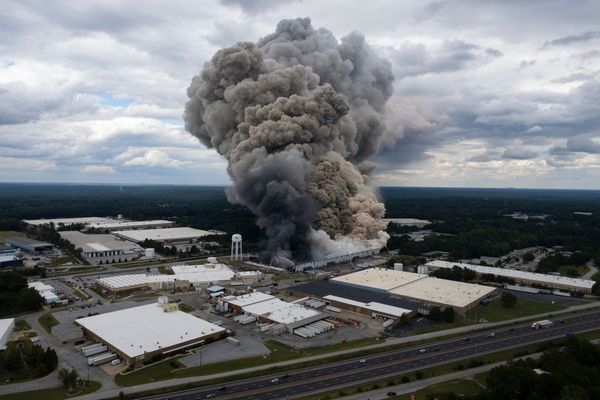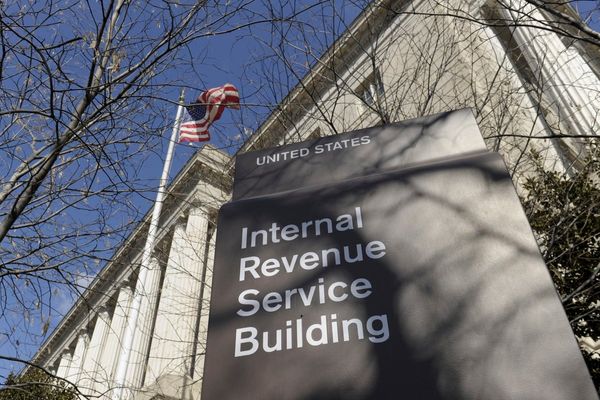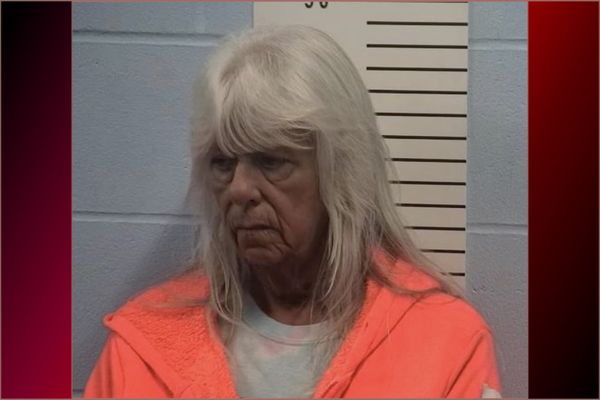In the final days of his wild and bloody presidency, Rodrigo Duterte was wistful about a few things he had yet to achieve for the Philippines.
"Before I leave, let's finish three or five drug lords," he said.
"I want to kill them. I do not want them alive."
From the moment he was sworn into power in 2016, Mr Duterte declared that Filipinos had one common enemy: the drug trade.
Claiming that there were 3 million addicts in need of "slaughter", he said he would offer bounties to police for killing suspected users and dealers.
A bloodbath ensued.
Estimates vary, but the Philippines government says more than 6,000 people have been killed in police anti-drug operations over the past six years, and there have been more than 300,000 arrests.
Some human rights groups believe the death toll is closer to 30,000 when including anti-drug deaths at the hands of vigilantes.
But the shock-and-awe enforcement methods have failed to severely reduce the nation's drug trade, leaving even passionate supporters of the outgoing the President to call for a more compassionate approach.
Now, his successor, Ferdinand "Bongbong" Marcos Jr, is under pressure to overhaul the brutal tactics.
Assassins, bounties and dead children
While Mr Duterte often portrayed the Philippines as a near "narco-state" awash with methamphetamines, the available data suggested a more complex situation.
The UN Office on Drugs and Crime claimed in 2007 that the Philippines had the highest prevalence of meth use in the world.
But just a few years later, the same office said the nation had a low prevalence rate of drug users compared to the global average.
But Mr Duterte's war on drugs was still a broadly popular campaign, which was initiated after his election win in 2016 and saw mass arrests, police shootings and killings of alleged drug dealers and users.
He established a national task force to target drug use and the gang-related trade, encouraged shootings in multiple public speeches, and even called for the killing of critics of his violent campaign.
Human rights groups believe the shootings not attributed to police officers were often carried out by vigilante assassins linked to law enforcement, so called "death squads".
Dozens of children and teenagers were killed, as were more than a dozen mayors and other public officials.
Critics say many victims were not even related to the drug trade.
A separate campaign against an alleged Communist insurgency has simultaneously seen the police and the military facing accusations of extra judicial killings.
Last year the International Criminal Court (ICC) was set to investigate some of the anti-drug killings, including allegations that police fabricated evidence to suggest the shootings were in self-defence.
But the ICC backed off when Mr Duterte's Department of Justice pledged to open its own investigation into the cases.
The poor were often in the crosshairs of Duterte's war
While the campaign peaked in the initial years of the Duterte government, there were still dozens of deaths linked to the anti-drugs effort in 2021, according to data from US-based research organisation ACLED.
And while Mr Duterte vowed to target drug lords in his war, it was overwhelmingly the poor who were killed and jailed.
"In order to feed your family, you need to sell drugs," said Bilog, a methamphetamine dealer in Masambong.
Bilog's neighbourhood is a drug war hotspot in Quezon city — part of Manila's capital region.
The 49-year-old was jailed for more than two years during Mr Duterte's crackdown.
But as soon as he was released, he went back to dealing.
He lives in a humid one-room shack he shares with two teenage sons. Both boys are also meth dealers.
"It's our basic source of income so we'll keep doing it in spite of what happened," he said.
"The drug war devastated my family and every family in the Philippines that sells drugs."
His two years of incarceration plunged his family even further into poverty, but he told the ABC he was now finding it easier than ever to make money because he had a reliable supplier.
"The dealers who were jailed in the crackdown of course returned to selling after they got out of prison," he said.
One social justice campaigner told the ABC there were other ways for those at the bottom to earn an income but drug dealing was seen as "easy money".
Nonetheless, advocates for victims of the drug war say it is the persistent nature of the illicit drug trade among the country's poor that should prompt the incoming administration of Bongbong Marcos to rethink it.
Giving the dead a proper burial
Father Flavie Villanuevahei was once upon a time in the throes of drug addiction.
These days he helps the families of drug-war victims who were buried in temporary graves to have a proper cremation.
Some of the dead may have been small-time dealers, but the families of others say they weren't involved in drugs at all.
He fears the drug war will continue even after Mr Duterte leaves office.
"The problem with Duterte's administration is that instead of approaching it as a medical and psychological issue, they brought in fear and used law and order as the solution," he said.
Among the relatives at Father Flavie's church is Lourdes De Juant.
Her husband was killed in the early years of the anti-drugs campaign.
"My husband's ambition was that some day our children will finish school," she said through tears.
"All I wish now is that our new president will give us justice and that they no longer kill innocent and helpless victims."
Another woman attending a ceremony in Quezon City had two sons shot dead. She is now helping to look after 12 grandchildren.
"It's mainly the family breadwinners — the sons and husbands — who have been targeted," Father Flavie said.
As Duterte steps down, his daughter rises
During his presidential campaign, Ferdinand Bongbong Marcos Jr promised to maintain Mr Duterte's anti-drugs effort, but to "do it with love".
He has pledged more funding for rehabilitation programs and to shift the enforcement side of the campaign towards the big fish, rather than those at the bottom.
Supporters of the incoming president tend to defend the anti-drugs campaign, even if they think it needs an overhaul.
"Duterte did the tough part to shake the country, to shake the people, to wake them up," said Vince Avena, a Manila-based political commentator who supported the Marcos campaign.
And the appointment of Mr Duterte's daughter Sara as the new vice-president to Bongbong Marcos underscores the "tough on crime" continuity the new government is seeking.
"I can only hope the new administration doesn't just look at [the drug issue] from a criminal perspective," Gwen Pimental Gana, the country's outgoing human rights commissioner, said.
"The drug war should be recalibrated to recognise the multidimensional nature of drug dependence in the country."
Aside from a change in tactics, she's hoping victims of extrajudicial killings get justice.
"The perpetrators need to be held accountable," she said.
The pressure of a potential International Criminal Court investigation appears to have prompted the Mr Duterte's government to review dozens of cases alleging unjustified shootings by police.
The Department of Justice has already recommended prosecutions against 154 police officers, stemming from a review of 52 cases last year.
It was a rare admission of misconduct from the government. And authorities have pledged to review thousands more police operations that involved shootings.
But it is a long wait for answers and justice for the families of those killed.
And without a change in the overall culture of the anti-drugs policy, critics fear there will be many more deaths.







